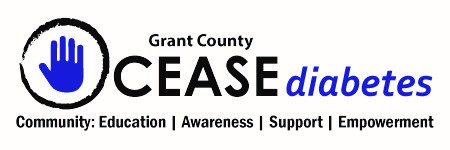What is Diabetes?
A chronic disease marked by high levels of blood glucose due to defects in insulin production, insulin action, or both. Symptoms of diabetes (hyperglycemia or high blood sugar) may include: Increased thirst, frequent urination, hunger, fatigue, blurry vision, and slow healing wounds.
Facts About Diabetes (American Diabetes Association 2015)
- Diabetes is a growing epidemic, now affecting over 29 million Americans.
- Diabetes is the 7th leading cause of death in the United States.
- 2-4% increased risk of heart disease (leading cause of death with diabetes).
- Leading cause of kidney failure and new blindness.
- Leading cause of non-traumatic lower-limb amputations.
Pre Diabetes
- Affects over 80- million Americans over the age of 20.
- Glucose levels are higher than normal but not yet at diabetic levels.
- Weight loss and increased physical activity may delay or prevent the onset of type 2 diabetes.
Control
- The ADA (American Diabetes Association) recommends keeping blood glucose and blood pressure levels as close to normal as possible to help prevent complications from diabetes.
- Control is a balance between: Activity, medications and meal planning.
Healthy Eating
- Meals balanced throughout the day with healthy snacks.
- Recommended: high fiber, whole grains, fruits, vegetables, and lean meats.
- Low in fat with less sugar and sodium.
- Portion control is key.
Steps You Can Take
- At each diabetes healthcare provider visit have feet inspected and have a comprehensive foot exam yearly.
- Become educated about your diabetes.
- Daily meal planning, exercise and glucose testing is essential.
- Know about medications: how they work and the proper way to take them.
- Clean and check feet every day.
- Learn about possible long term complications and how to prevent them.
- Have a yearly dilated eye exam - Be sure that your eye doctor knows that you have diabetes.
According to the American Diabetes Association and American Association of Diabetes Educators, research supports the value of formal diabetes education and support, improving medication use, A1c targets, reducing the onset and advancement of diabetes complications, improving lifestyle behaviors, reducing diabetes related distress, and improving quality of life. Literature also shows that diabetes education is cost effective in reducing hospital admissions and re-admissions. Medicare and many private insurers cover up to 10 hours of diabetes education and two hours in each subsequent year of follow-up education delivered in programs that have been accredited by either the ADA or AADE.
The Diabetes Self-Management Education and Support Program of Marion General Hospital has been nationally recognized by the American Diabetes Association since 1996. The program offers services to help the person with diabetes learn the self-management skills necessary to manage diabetes and maintain a healthy lifestyle. Our goal is to improve the quality of life for the person with diabetes.

We offer a combination of individual appointments and group sessions. Our program is staffed by nationally board certified diabetes educators, registered nurses and registered dietitians. Phone: (765) 660-6690.

